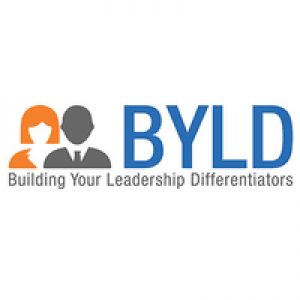The Best Psychometric Assessments Used in Organizational Set UpsPosted by BYLD Group on January 24th, 2022 As and when an organization decides to hire employees into the organization, psychometric assessment and tests have become a trendsetter as they assess the strengths and weaknesses of an individual. This helps organizations analyze the individual traits and characteristics of an individual’s personality which further helps them in assessing what kind of training or leadership styles will enhance their organizational development, work performance and productivity. Why is the Use of Psychometric Assessment Tools Important for Organizational Development? The reports that are generated through the analysis of these psychometric evaluations give a basis of understanding into the an employee’s mind makeup or psyche, by assessing their personality, characteristics traits, motivations, aspirations and interests, these assessment for learning provides team leaders with a better understanding of their mental ability to perform the designated role effectively and also help them gauge as to how productive their work performance would be. However, one must note that the results of these assessments may not always portray a definitive or objective blueprint of an individual. Despite that, they help organizations and industrial leaders find the best fit for their organization by aligning with the business requirements of the industry standards. This helps employers to create a streamlined team that optimizes the work productivity and job satisfaction of an individual. The process of choosing which psychometric assessment is the most feasible and objective tool to be used to assess your employees or candidates can be quite confusing. There are no right designs or sample generalizability that makes any one of the assessments the best fit. Therefore, it is wise to use your judgement to choose the right organizational assessments for your targeted niche and industrial business. Types of Industrial Psychometric Assessment Provided by Organizations: The Big 5 Personality Test The big 5 personality test is the most widely known psychometric tool for organizational teams. Although, many could also confuse this with NEO-FFI-3 which is a 60 item version of NEO-PI-3 that measures Neuroticism, Extraversion, Openness, Agreeableness and Conscientiousness. The Big 5 personality assessment provides employers an insight as to whether an individual is job role or company fit taking into account the socio-cultural context adjustment by assessing their personality on five main personality characteristics or traits which is also often referred to as the acronym ‘OCEAN’ that stands for Openness, Conscientiousness, Extraversion, Agreeableness and Neuroticism. For quite many years, these recruiters have relied on using the Big 5 Test as a sychometric evaluation to assess how suitable the candidate is to join the team and what their personality traits are to be able to foster productive work performance. The Occupational Personality Questionnaire (OPQ) The Occupational Personality Questionnaire (OPQ) is known to be one of the most renowned psychometric tools used for assessing organizational teams in which the participants are invited to describe their behavior, attitudes and other preferences in their professional sphere of work life so that these assessments can be used to enhance organizational development and further helps them in their career transition. However, unlike various other assessments, the OPQ assessments are specifically designed for the using it within the organizations as it concentrates on an occupational model of personality of the working population. The most commonly used OPQ assessment was the first commercially available Big Five Instrument and the SHL OPQ which was developed by Savile & Holdworth’s company in 1984 providing around 32 measures of personality traits that were deemed relevant to occupational settings and work performance. These personality traits that are measured could be mainly classified into separate categories that includes factors such as relationships, sociability, influence, empathy, and thinking style. Besides what is also incorporated in these OPQ are social desirability measures in an attempt to prevent individuals from ‘faking’ their responses. These OPQs are mostly used to re-deploy the available and evaluated talent across the business by identifying future business leaders, and evaluating the existing talent pool for creating first-class project teams. The DISC Assessment This assessment was modelled by Willian Moulton Marston who developed this tool to measure employees on the basis of four dimensions of personality known as dominance, influence, steadiness and conscientiousness to be able to get insights as to how they can help teams interact, communicate and collaborate more effectively. Organizations mostly use this to learn about their team member’s styles, their quality of workplace and the work performance of quality that can be produced. Why Choose These Assessment for Learning Psychometric Evaluations? When these psychometric assessments are employed in an organizational capacity this not only helps employers determine the plan of action or intervention when it comes how they should training their employees or what kind of assessment for learning transfer should they follow but it also allows them to review how well a member can communicate and work with other team members by approaching the preferences to improve team morale and performance. The questionnaire developed by these assessments give an individual the idea of how collective communication can help them facilitate the work environment in a way that enhances the work productivity of the employees in an organization. Like it? Share it!More by this author |


